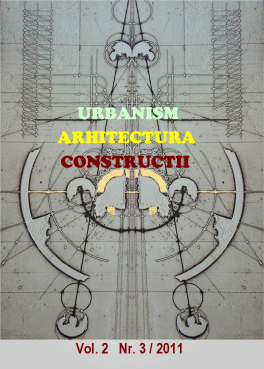Conservarea şi restaurarea monumentelor istorice: unele obiective şi principii (probleme inginereşti la monumente)
Conservation and restoration of historical monuments: objectives and principles (engineering issues related to monuments)
Author(s): Daniel COVATARIUSubject(s): Architecture
Published by: INCD URBAN-INCERC
Keywords: conservation; rehabilitation; antiseismic insurance; consolidation; monuments
Summary/Abstract: Even when large parts of the original substance were lost throughout its existence, the monument should be regarded as a spatial structure, participating to the reality around them. Precepts governing the conservation and rehabilitation of historical monuments have to be applied individually to each monument, according to his personality, his past or future function, conservation status, in the way that the rehabilitation concept results from obligations balance to not harm the monument - Primum non Nocera (Carta de la Veneţia) even to act for the future generation’s heritage. Monument to be seen through all the three attributes: FIRMITAS (solid, technical achievement), UTILITAS (functionality, the purpose for which it was made), PULCHRITAS (beauty, aesthetic expression). The historical monument’s components are: the land – cadastral lot, constructions, exterior arrangements, other elements, cultural mobile goods. The actions of historical monuments should consider the following objectives and principles: maintenance, rehabilitation, consolidation, security, social, economic and cultural life of the local community. The principles underlying these goals: building’s state expertise from all points of view, the building’s consolidation solution must not affect the architectural appearance, to maintain authenticity, the level of response and earthquake insurance, as a matter of urgency execution of building works, reversible methods applied in conservation and / or rehabilitation, compatible materials used in conservation and / or rehabilitation, the loads resulting from new building elements should not exceed the capable strength of materials of (blocks of masonry, mortar, etc..), the resulting structure after consolidation should lead to good seismic behavior of the assemble "old structure - new structural elements," reintegration cultural and social, etc.
Journal: Urbanism. Arhitectură. Construcţii
- Issue Year: 2/2011
- Issue No: 3
- Page Range: 41-44
- Page Count: 4
- Language: Romanian

